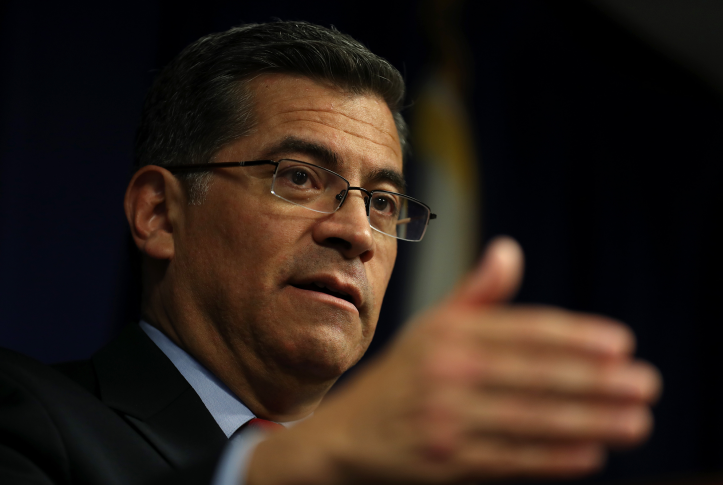This week, the Senate will hold hearings on the nomination of Xavier Becerra to be President Biden’s Secretary of Health and Human Services. Never has this job been more important.
If confirmed, Mr. Becerra will have enormous health care issues to address — in addition to the COVID-19 pandemic. Senators should consider these areas during the nomination hearings:
- addressing the general inequity of our health system
- providing health insurance coverage for 30 million uninsured Americans
- preparing for future health disasters
- making health care more affordable.
Addressing Inequity
COVID-19 should force a long overdue reckoning with the inequity of our health care system. In his work in Congress, representing a poor, heavily Latino district, and as California’s attorney general, Mr. Becerra has a strong record on this issue.
As Secretary of Health and Human Services, he would face a daunting challenge. Just this week, the Centers for Disease Control and Prevention (CDC) reported that in the first half of 2020, life expectancy for all Americans decreased from 78.8 years to 77.8 years; for Black people, it dropped by nearly three years and for Hispanic people, by nearly two. Recently released CDC data also show large disparities in vaccination rates for Black and Latino populations. Black women are 2.5 times as likely to die during pregnancy or after giving birth as white women and three times as likely as Hispanic women. Black women have a 40 percent higher rate of dying from breast cancer as white women.
Senators could ask Becerra how the new administration will reduce inequities. Expanding insurance coverage would help, as would options described in the Commonwealth Fund Task Force Report on Payment and Delivery System Reform, including:
- requiring Medicare and Medicaid providers to collect and report data on disparities of care affecting their patients
- incorporating equity measures into value-based payment arrangements in Medicare and Medicaid
- requiring providers of Medicare and Medicaid services to be more representative of the communities they serve.
Expanding Coverage
In 2016, the number of Americans lacking health insurance reached an historic low — 10 percent of the under-65 population, or 27.5 million people — thanks to the gains made under the Affordable Care Act (ACA). Since then, the number has been creeping up; it now totals more than 30 million. President Biden’s COVID rescue package includes a limited number of short-term measures to increase coverage and expand affordability, like offering more generous subsidies in ACA marketplaces, providing support for laid-off workers buying COBRA policies, and strengthening Medicaid.
Congress should gauge how Becerra and the new administration will support additional measures to reduce the number of uninsured Americans, including federal incentives for states that have not yet expanded Medicaid or, in lieu of expansion, a fallback coverage option provided by the federal government. Expanding Medicaid in the 12 nonexpansion states would do more than anything else to reduce the uninsured rate and lessen health disparities by race and ethnicity.
Preparing for Health Disasters
To date, almost a half a million lives in the United States have been lost to the pandemic. We know with tragic certainty the U.S. is virtually defenseless against pandemics; more are surely on their way. Congress must find out how Becerra and the new administration plan to fortify the country against future public health disasters. The following areas are critical and should be included in questioning:
- developing a national, integrated electronic disease surveillance system to track new infectious threats
- building a national public health information system to monitor the availability of critical resources for combatting new pandemics, like hospital beds, medication, and personnel
- rebuilding the capacity of state and local public health agencies to respond to pandemics
- creating a national pandemic response plan to coordinate responsibilities among public and private health care entities.
Ensuring Affordability
The U.S. health care system is facing an affordability crisis. A 2020 Commonwealth Fund survey found that, when the pandemic hit, almost half of working-age Americans lacked access to health insurance coverage that adequately protects them against costs. High prices charged by the suppliers of health care services are at the heart of this crisis.
This is nowhere more apparent than in drug prices. More than one-fifth of Americans report not filling a prescription because of cost. Drug prices are the top concern among small employers in offering employees health coverage. These prices are far higher than what other countries pay for prescription drugs.
In addition, prices for routine medical services are often exorbitant and can vary highly within and between markets. Consolidation in health care markets and lack of transparency are two factors at play.
Becerra is very familiar with hospital market consolidation. As California’s attorney general, he successfully sued the Sutter Health system to curtail alleged anticompetitive behaviors. How would Mr. Becerra use his post to address similar problems in other markets, and how would he pursue price transparency more generally? Congress also may be interested in Becerra’s views on approaches taken in other countries, like the German model that uses negotiation and comparative assessments in pricing new drugs.
In its questioning, the Senate must find out how Mr. Becerra will approach the enormous health care challenges facing Americans, including the pandemic. Ensuring access to equitable, affordable care and bolstering our nation’s ability to respond to future pandemics relies on many actors, but leadership matters. This week, Xavier Becerra will have the opportunity to lay out his vision for achieving these critical goals.





